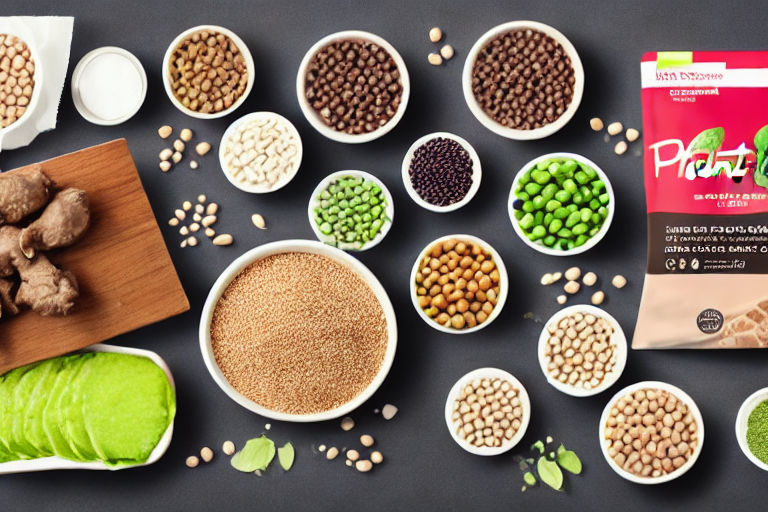Plant-Based Protein Alternatives for Non-Seafood Lovers
Eating a balanced diet that is high in protein is essential for maintaining good health. Protein is responsible for building and repairing tissues, boosting immunity, and producing hormones in the body. However, not everyone is a fan of seafood, which is commonly known as the go-to protein source. This can make it challenging for non-seafood lovers to consume an adequate amount of protein. In this post, we are going to explore some plant-based protein alternatives for those who are not fond of seafood.
Soy Products
Soy products such as tofu, tempeh, edamame, and soy milk are excellent sources of plant-based protein. Tofu, also known as bean curd, is made of soybeans and is incredibly versatile. You can add it to soups, salads, stir-fries, and even smoothies. Tempeh is another soy product that is made from fermented soybeans, and it has a nutty flavor that is perfect for making vegetarian burgers. Edamame, which is simply young soybeans, is a great snack option that you can enjoy steamed or roasted. Soy milk is an excellent dairy milk alternative that is rich in protein and can be used in smoothies, cereals, and baking.
Legumes
Legumes such as chickpeas, lentils, black beans, and kidney beans are also excellent sources of plant-based protein. These legumes are not only high in protein, but they are also rich in fiber, iron, and other essential nutrients. You can enjoy them in soups, stews, curries, salads, and even in dips like hummus. Lentils are great for making vegetarian shepherd's pie or lentil soup, while chickpeas are perfect for making hummus, falafel, or veggie burgers.
Nuts and Seeds
Nuts and seeds are also great sources of protein and healthy fats. Some of the best options include almonds, peanuts, cashews, pumpkin seeds, and chia seeds. Almonds and cashews can be made into creamy nut butter, which can be used as a spread or added to smoothies for an extra protein boost. Pumpkin seeds and chia seeds can be added to your cereals, salads, and smoothies for added texture and protein.
Seitan
Seitan, also known as wheat meat, is a vegan meat substitute made from wheat protein. It has a chewy texture and can be flavored to taste like meat. Seitan is excellent for making vegetarian sausages, deli slices, and kebabs. However, if you have gluten intolerance, this is not a good option for you.
Final Thoughts
In conclusion, there are plenty of plant-based protein alternatives for those who do not like seafood. Some of the best options include soy products, legumes, nuts and seeds, and seitan. Incorporating these protein sources into your meals will not only help you meet your protein needs but also provide you with important nutrients that are essential for good health.



